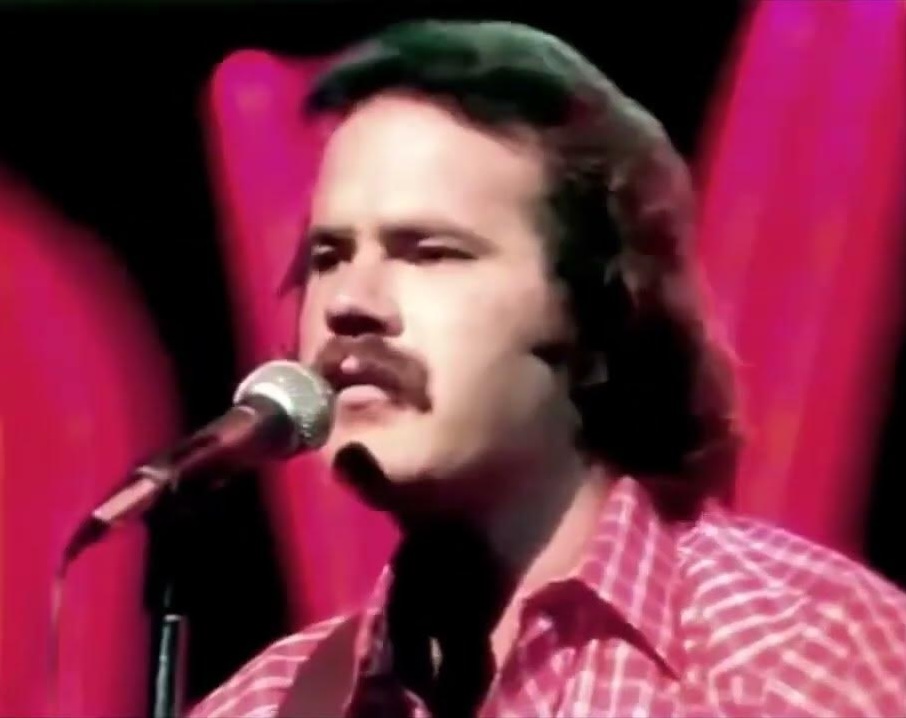Label Exec Shares Story of Dave Loggins, Singer-Songwriter (‘Please Come To Boston’)
by Best Classic Bands Staff Dave Loggins, a small town Tennesseean who earned a top 5 pop hit in 1974 with the plaintive “Please Come To Boston,” died July 10, 2024. His death, at age 76 at a hospice facility in Nashville, was announced by The Tennessean. No cause of death was revealed. (The musician was a second cousin of Kenny Loggins, though they apparently didn’t meet until each was well-established in their careers.) When he died, a former executive of Epic Records told how Dave Loggins made a significant career pivot. Read it below.
Dave Loggins, a small town Tennesseean who earned a top 5 pop hit in 1974 with the plaintive “Please Come To Boston,” died July 10, 2024. His death, at age 76 at a hospice facility in Nashville, was announced by The Tennessean. No cause of death was revealed. (The musician was a second cousin of Kenny Loggins, though they apparently didn’t meet until each was well-established in their careers.) When he died, a former executive of Epic Records told how Dave Loggins made a significant career pivot. Read it below.
From a biography on the Nashville Songwriters Hall of Fame, in which Loggins was inducted in 1995: Loggins was born on November 10, 1947, and raised in the mountains of east Tennessee, in a town three square miles wide and with a population of just over a thousand. His father was a country fiddle player, and Dave started playing the guitar and writing songs in high school.
As he worked towards becoming a professional musician, he supported himself first as a draftsman at a metal company, then as an insurance salesman. In 1970, he took a chance and moved to Nashville. All he had was his guitar and a notebook full of original songs in a soft acoustic style similar to that of James Taylor and Dan Fogelberg.
“Nashville was hard, because if you didn’t have country tunes, people didn’t want to hear it,” Loggins later said. “I spent a couple of hard years there.”
In 1972, Loggins released his debut album, Personal Belongings, on Vanguard Records. Though it was largely overlooked, one of the songs, “Pieces of April,” was a top 20 single for Three Dog Night later that year. Loggins moved to Epic and his second album, 1974’s Apprentice (In a Musical Workshop), yielded the #5 pop hit “Please Come to Boston” that summer.
The song earned a Grammy Award nomination for Best Male Vocal Performance, losing to Stevie Wonder. When three follow-up albums failed to chart, Loggins reinvented himself as a country hit songwriter.
Longtime music industry executive Dan Beck shared some insight with Best Classic Bands into Loggins’ career pivot. In 1979, Beck had returned from Epic Records’ Nashville office to join the label’s New York office as a product manager and Loggins’ manager arranged for him to handle Loggins’ new album. “In my memory,” he recalled, “Dave was a very reluctant artist, despite his enormous talent as a singer. At one point, he flew up to NYC for a series of meetings at the label and my office served as his base of operation for those few days. I remember how much he struggled with all things of being an artist. The travel, the promotion, the handshaking, etc., seemed so invasive to his soul. It was actually painful when he would return from each meeting and convey to me how uncomfortable and anxious it made him.
“The day he left to return to Nashville, I arranged for a car to take him to the airport. He had all his bags in my office, and just the complications of getting to the airport seemed to deeply trouble him. Before he left, I looked him in the eye and spilled my thoughts. I told him that maybe he shouldn’t be an artist, even though he had such a pure voice. And I said this because his pain was so palpable. Being an artist seemed to be such torture to him. And he was so contented and joyful as a songwriter. I told him that maybe that’s who he should be. I don’t think I’ve ever leveled with an artist as directly as I did that day… and for years after, I asked myself if I had done the wrong thing.
“Though he recorded successfully after that album, he never really pursued the ‘artist’ part of his career. In the meantime, his songwriting career was glorious and I believe his songs will be discovered in years to come. I always wanted to reach out to him again, and ask him if I had over stepped. But those rendezvous never seem to happen.”
In the ’80s and ’90s, Loggins had a string of chart-topping country hits recorded by Alabama, Kenny Rogers, Don Williams, Restless Heart, Reba McEntire, Gary Morris and Wynonna Judd, and was named ASCAP’s Songwriter of the Year for 1987. His successful run continued with songs recorded by Lee Ann Womack, Willie Nelson, and others. Loggins also wrote “Augusta,” which has been used for years as the theme song for the annual Masters golf tournament.
As an unsigned recording artist, Loggins scored a #1 country hit in a duet with Anne Murray on “Nobody Loves Me Like You Do” in 1984. The song earned them a 1985 CMA Vocal Duo of the Year Award.
Related: Musicians we’ve lost in 2024
In a tribute, the country music band, Sawyer Brown, wrote, “Sad to hear that our friend Dave Loggins passed away. ‘Please Come to Boston’ is one of our all-time favorite songs—so you can imagine how much we loved getting to work with Dave, one of our musical heroes, on the Can You Hear Me Now album. And we were blown away when he wrote “(This Thing Called) Wantin’ and Havin’ It All” and brought it to us—such a blessing. Sending love and prayers to his family—and gratefully remembering our friend.”
Lee Greenwood wrote, “Dave was an incredible singer, guitar player, and a writer. It was his music that drew me to Nashville, Tennessee in 1979. Dave was from Bristol, TN, but he made the world know who he was by the songs he wrote and sang. We will miss his great talent, but his songs will live forever.”







4 Comments so far
Jump into a conversationPlease Come To Boston was a nicely written song and well performed. I wondered what became of the author. No wonder Dave Loggins wrote songs for so many talented performers, they realized how skilled he was.
“Please Come To Boston “ was always one of my favorites and I always wondered why this man never became a long distance performer. It’s nice to know how happy he was as a songwriter for others!
Dave used to shop at Record Bar #12 in the Johnson City Mall. It was around the time of the release of his Vanguard album. He was very soft-spoken and humble. My condolences to his family.
always loved Dave’s songs especially pieces and please! how about his rarely mentioned family(not Kenny) ! His songs seem to radiate deep love of home, wife, children etc. Lyrics that any songwriter would die for, vocal range and quality just out of this world!